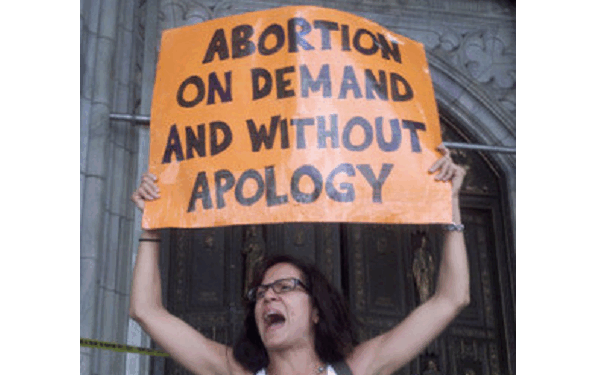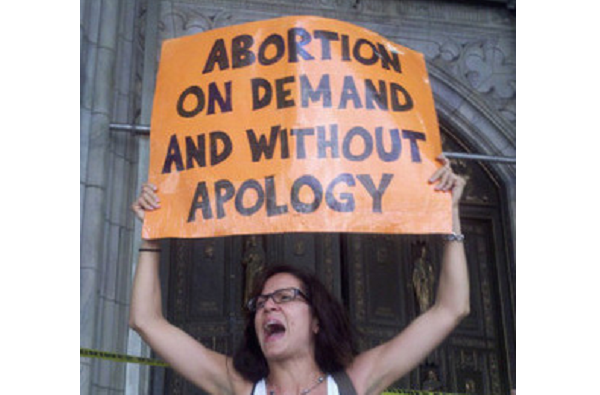Across Latin America, the Green Wave has become a symbol of feminist pride, with its sea of green scarves and choreographed protests dominating regional headlines starting on September 28, the Global Day of Action for Safe and Legal Abortion, and continuing into early October. The movement’s leaders claim to speak for the poor, the indigenous, and the forgotten. Yet the very women they invoke stand to suffer the most from what the activists demand.
The Green Wave’s latest crusade is for widespread access to mifepristone, the abortion pill celebrated by Western NGOs as a shortcut to equality. But in a region where hospitals are few, doctors scarce, and malnutrition rampant, that so-called shortcut would be catastrophic. In Latin America, a “chemical abortion” is not performed in a staffed medical center; it’s carried out in homes with dirt floors, in villages without electricity, among women who may never see a trained physician.
And the numbers tell a grim story. The Global Nutrition Report estimates that 17 percent of Latin American women of childbearing age suffer from anemia. The World Food Program says over 40 percent of the population faces moderate or severe food insecurity. In rural Guatemala, half of all girls under five show signs of stunting, a clear marker of chronic malnutrition. Nearly a quarter of Latin Americans still lack access to safe drinking water. For millions of women, pregnancy occurs in a body already burdened by deprivation. To hand those same women a drug known to cause heavy bleeding for up to two weeks is not compassion—it’s inhumane.
HELP LIFENEWS SAVE BABIES FROM ABORTION! Please help LifeNews.com with a donation!
Even in “first-world” nations with advanced healthcare systems, mifepristone carries alarming risks. Some developed countries report that eleven percent of women who use it end up in emergency rooms, and the complications are not minor. They include severe bleeding, infection, incomplete abortion, and the need for surgical intervention. Those numbers come from countries with emergency transport, stocked hospitals, and trained staff. In remote areas of Peru, Bolivia, or the Amazon, such “routine complications” become death sentences.
The region’s health infrastructure is nowhere near ready for the burden this drug would create. The Pan American Health Organization reports that twenty women still die every hour in Latin America and the Caribbean from pregnancy-related causes. The reasons are well known: the “three delays”—delay in deciding to seek care, delay in reaching care, and delay in receiving care. Mifepristone multiplies each one. Women hesitate to seek help because of stigma, lack the means to reach distant hospitals or clinics, and often find no medical personnel when they arrive. What begins as a political victory for “choice” ends in a humanitarian tragedy.
Proponents argue that abortion pills will reduce unsafe abortions, but that claim collapses under scrutiny. There is no such thing as a safe abortion in a system that cannot provide basic healthcare. In Mexico City or São Paulo, elites may find private doctors to manage complications. But rural and indigenous women, the very women pro-abortion activists claim to defend, will be left to suffer alone. The Green Wave’s crusade will widen inequality, not end it.
Chile proves that maternal safety depends not on abortion access but on infrastructure. Much to the chagrin of pro-abortion zealots, Chile has maintained its legal pro-life protections, and as a result, Chile has one of the lowest maternal mortality rates in the world. Its secret isn’t ideology, it’s investment. Chilean women have clean water, nutrition, and competent medical care. Those are the objective markers of progress, not chemical shortcuts peddled by activists who can board a plane home when the cameras leave.
The Green Wave wraps its agenda in slogans about empowerment and justice. But flooding fragile health systems with mifepristone will not lift women out of poverty or save lives. It will endanger them. The region doesn’t need imported ideology from Europe’s NGOs or America’s activist class; it needs clean water, clinics, and care. Genuine compassion meets women where they are and gives them the tools to live, not pills that leave them to bleed in silence.
Latin America deserves better than the Green Wave’s dangerous tide. Its women deserve doctors, not slogans; nutrition, not neglect; and a movement that values both their lives and the lives they carry.
LifeNews.com Note: Raimundo Rojas is the Outreach Director for the National Right to Life Committee. He is a former president of Florida Right to Life and has presented the pro-life message to millions in Spanish-language media outlets. He represents NRLC at the United Nations as an NGO. Rojas was born in Santiago de las Vegas, Havana, Cuba and he and his family escaped to the United States in 1968.












